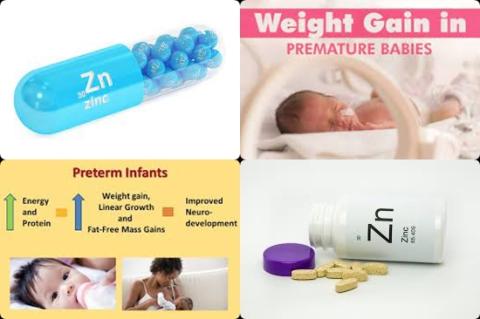
Objectives:
Have enteral zinc supplementation positive effects on growth and neurodevelopmental outcomes of preterm infants?
Study design:
This review article included 8 RCTs with 742 infants.
7 studies reported growth anthropometrics at 3-6 months corrected age (CA) and 2 studies reported neurodevelopmental outcomes at 6-12 months CA.
Evidence was "moderate" certainty for weight and length and "very low" certainty for neurodevelopment.
Results and conclusions:
The investigators found enteral zinc supplementation was significantly associated with increased weight z-score [weighted mean difference (WMD) = 0.50, 95% CI = 0.23 to 0.76, I2 = 89.1%, p 0.01], length z-score [WMD = 1.12, 95% CI = 0.63 to 1.61, I2 = 96.0%, p 0.01] and motor developmental score [WMD = 9.54, 95% CI = 6.6 to 12.4, I2 = 0%, p = 0.52] in preterm infants.
The investigators found enteral zinc supplementation had no effect on head circumference and total developmental score in preterm infants.
The investigators concluded enteral zinc supplementation enhances weight gain and linear growth in preterm infants. There is a lack of data about relationship between zinc supplementation and neurodevelopment.
Original title:
Effect of enteral zinc supplementation on growth and neurodevelopment of preterm infants: a systematic review and meta-analysis by Alshaikh B, Zeed MA, […], Fenton T.
Link:
https://pubmed.ncbi.nlm.nih.gov/34006967/
Additional information of El Mondo:
Find more information/studies on RCTs/cohort/significantly/review article, zinc, pregnancy and food fortification/malnutrition right here.
Enteral administration involves the esophagus, stomach and small and large intestines (i.e., the gastrointestinal tract).